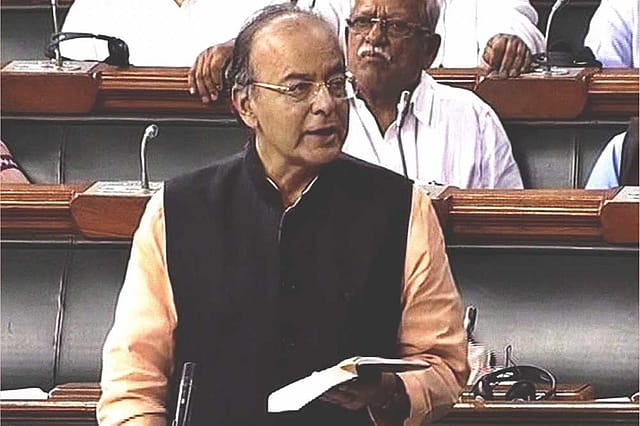Rajya Sabha Fireworks

SPARKS FLEW IN the Rajya Sabha on March 29th, when a united opposition lambasted the Government during a debate on the Finance Bill for 2017-18. Charges and counter-charges flew thick and fast, as is often the case when political forces are arrayed unequally—the opposition has an upper hand in the House. But perhaps the sharpest accusation was of Constitutional impropriety.
The matter is technical and revolves around the definition of a ‘money bill’. These bills are defined exhaustively in the Constitution, and deal largely with the imposition of taxes. Further, the Speaker of the Lok Sabha has the last word on whether a bill is one such. The Rajya Sabha cannot block such a bill, and even if it suggests amendments to them, the Lower House is free to ignore them.
In the case of Finance Bill 2017-18—which gives shape to the Union Budget—the Government suggested 40 amendments that indeed have little to do with taxation, at least on the face of it. Under normal circumstances, such amendments require stand-alone bills, and are not tagged on to an omnibus finance bill. So, constitutionally speaking, the precedent it sets is worrying: any future government may be tempted to over-ride an inconvenient Rajya Sabha composition in this manner.
If the intent of the Government is open to question, the context in which all this happened needs to be understood carefully. Since the opposition—mainly the Congress— suffered an electoral rout in 2014, its attitude has been one of parliamentary obduracy. By now, the count of bills that have been turned down in the Upper House merely because the opposition is in a ‘bad mood’ is well beyond a reasonable figure. The fate of the Bill to undo the damage inflicted by the 2013 Land Acquisition Law exemplifies this: after issuing an ordinance a number of times, the Narendra Modi Government gave up. The opposition had blocked this and other bills in what can be described as a fit of pique at its loss in the General Election of 2014.
2026 Forecast
09 Jan 2026 - Vol 04 | Issue 53
What to read and watch this year
Politics abhors a vacuum. The ‘innovative’ use of a money bill to bypass the Rajya Sabha represents the filling of a vacuum created by opposition cussedness. There’s no need for celebration, but the Congress and others in the Upper House must ponder their approach to legislation and what it implies to the functioning of a democracy.
